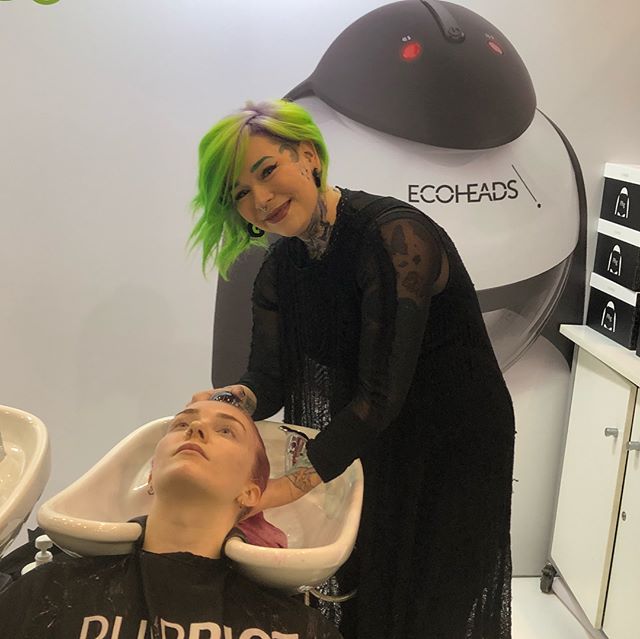
In the dynamic and demanding world of hairdressing, maintaining vibrant health and energy is paramount for stylists who strive to deliver exceptional client experiences daily. However, the physical demands of the profession can pose significant challenges, especially for those battling invisible illnesses. The story of Ash Fortis, a stylist living with Crohn’s disease, highlights the critical role that social responsibility in beauty with clean, ergonomic salon tools like the ECOHEADS Showerhead play in safeguarding the health of hairdressers and supporting their career longevity.
ECOHEADS, known for their commitment to sustainable salon initiatives, partnered with Ash Fortis of XO Hair Lab to spotlight the impact of invisible illnesses during Invisible Illness Week. Crohn’s disease, a chronic inflammatory bowel disease, had nearly derailed Ash’s career due to its severe symptoms, including debilitating abdominal pain and extreme fatigue. Despite these challenges, Ash’s determination and the adoption of supportive tools enabled her to continue pursuing her passion as a leading salon educator and stylist.
For hairdressers like Ash, who manage their conditions while maintaining high professional standards, the importance of using clean, efficient salon tools becomes evident. ECOHEADS Showerheads are designed not just for eco-friendliness but also to alleviate the physical strain on stylists. By providing a cleaner, more efficient rinse with increased water pressure and filtration, these showerheads reduce the time and effort required at the basin. This is particularly beneficial for stylists managing symptoms that can be exacerbated by prolonged standing or repetitive movements, ensuring they can perform their tasks with greater ease and less physical discomfort.
Moreover, the cleaner water provided by ECOHEADS directly contributes to the stylist’s well-being. Removing impurities such as chlorine, iron, and dirt from the water not only improves the client’s hair quality but also reduces the risk of skin irritations and respiratory issues for the stylist. This aspect of clean salon tools underscores their role in enhancing the workplace environment, making it safer and more comfortable for stylists, especially those dealing with health challenges.
The partnership between Ash and ECOHEADS during Invisible Disabilities Week – ECOHEADS volunteered to donate 100% of its profits from the sale of its best-selling environmentally-friendly product, The Showerhead, during Invisible Disabilities Week. This health-awareness campaign resulted in ECOHEADS raising $2,000 which was then donated to Chron’s research on Ash’s behalf.
The collaboration extended to instagram where ECOHEADS offered up its own Instagram account to Ash so that she could reach a wider audience with a takeover where she posted a number of personal pictures and comments of her daily struggles throughout the week. This complemented the wide audience found on Ash’s own Instagram account which has over 208k followers. The content produced across both accounts gained thousands of comments and meant wider conversations were had with stylists all over the world around invisible illnesses.




